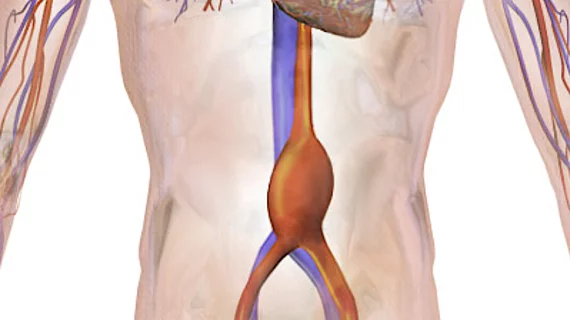The ACR is seeking input on follow-up recommendations for abdominal aortic aneurysm
The American College of Radiology has opened a public comment period for anyone seeking to provide input into the new evidence-based recommendations for abdominal aortic aneurysm (AAA) quality measures.
Specifically, the ACR is seeking additional input relative to radiologic-recommended follow-up imaging of AAA, which is often discovered incidentally during examinations being conducted for other reasons. The ACR is asking that radiologists participate in the public comment period by sharing their own preferences and experiences with AAA follow-up.
In a statement released on March 17, the ACR indicated that any feedback received is intended to assist the technical expert panel’s (TEP) work, which is overseen by the college's Commission on Quality and Safety’s Metrics Committee. By inviting public commentary, ACR hopes to improve adherence to follow-up recommendations for AAA findings, as the condition can be life threatening if it is not treated.
“During this 30-day public comment period, we are specifically interested in receiving input on the measures’ feasibility in practice, data capture, and ability to measure the intended actions, among other measure-specific questions,” the ACR noted.
The measurement-development project details will be available for viewing and subsequent comment for 30 days and are expected to close on April 26. Any updates to current measurement concepts (whether they are complete or being adjusted) are intended for use by the Centers for Medicare and Medicaid Services Merit-based Incentive Payment System and could directly affect physician payments.
The public comment portal can be found here.

